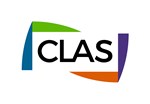Introducing Battered Women’s Support Services (BWSS)
 By Vicky Law
By Vicky Law
Lawyer & Legal Advocacy Program Coordinator
For the past 26 years, BWSS has had a Legal Advocacy Program because we know that for women leaving abusive relationships, the complication of dealing with the power and control issues of a violent spouse makes dealing with legal system more difficult. Some women give up and stay with their abuser because it is easier than leaving.
Our Legal Advocacy program has expanded this year. Here is an updated list of the legal services we offer. Click on the yellow icons for more details about each service within the Clicklaw HelpMap.
 Full representation – Legal Advocacy Program
Full representation – Legal Advocacy Program
Approximately 80% of the women who access our services do not have legal representation because they are ineligible for government funded legal aid and cannot afford a private lawyer.
We will take on full representation files based on: the current case load, availability of time, the number of law students volunteering at BWSS, and the complexity of legal issues. BWSS will also consider if the following applies:
- The woman has been denied by Legal Services Society for legal representation;
- The woman has appealed the Legal Services Society’s decision of denial and the appeal was unsuccessful;
- There are multiple barriers that prevent the woman from self-representation, including language, disability, complexity of legal issues, gender orientation, and impact of trauma;
- The use of the court system by the abuser as way to intimidate or harass or to continue any form of violence;
- The inability to privately retain a lawyer, such as financial difficulties; and
- The legal issue is either a family law, child protection or immigration law matter.
Call 604-687-1867 or 604-687-1868 ext. 307 to apply.
 Legal Advocacy Workshops
Legal Advocacy Workshops
Who & What: For women who have or are experiencing violence in their relationships and require legal support with the resulting family law and other legal issues. Lawyers from the community with experience in family law will facilitate all workshops.
When: Every Thursday, April 7, 2016 – June 9, 2016, from 10am – 12pm
Where: at the BWSS office – call 604-687-1867 for location
 Family Law Clinic
Family Law Clinic
BWSS provides summary legal advice clinics in family law every month with volunteer lawyers from the community. These clinics are able to offer necessary summary legal advice to women on a continuous basis while they are unrepresented in the family law system.
We continue our partnership with Access Pro Bono to provide monthly in-house pro bono clinics in family law.
Call 604-687-1867 for the clinic schedule.
 Court Forms Preparation Clinic
Court Forms Preparation Clinic
We have partnered with Amici Curiae Paralegal Program to provide assistance to unrepresented women with affidavit drafting in family law proceedings – both Provincial and Supreme Court.
When: Third Wednesday of every month, from 5:45-7:45pm
Where: Call 604-687-1868 ext. 307 for location and appointments








 Notice – BC Government URLs
Notice – BC Government URLs
